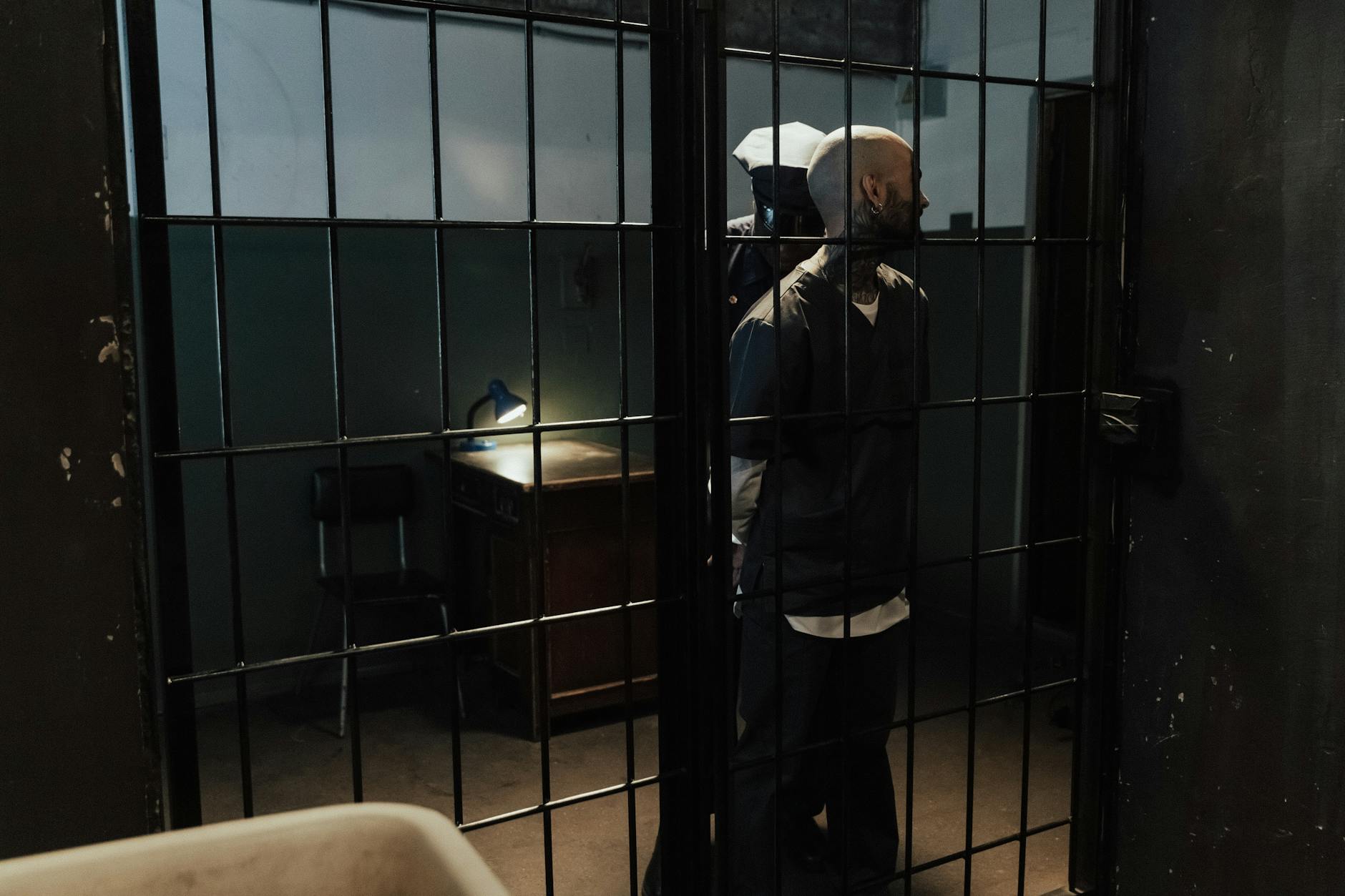Why Australia’s Police Check System Matters for Community Safety

Importance of Police Checks
In my experience in probation management, I’ve found police checks to play a crucial role in maintaining safety standards across various sectors, especially within construction. For a professional like Jake O'Connor, especially when managing projects in bustling areas near landmarks like the Queensland Police Museum, adherence to these checks is vital for ensuring safety and compliance.
Enhancing Community Safety
Police checks, such as a national police check qld or those specific to national police check victoria, are indispensable tools for bolstering community safety. They serve as an essential barrier against potential risks, ensuring that individuals working within key sectors have a clear history that fosters trust within the community. For construction managers overseeing projects in proximity to densely populated urban centers, conducting thorough police checks can significantly mitigate safety risks.
Safeguarding Construction Sites
For Jake and others in the construction industry, safeguarding a site is not only about physical barriers but also about ensuring that all personnel have passed a police check nt or equivalent. This process helps identify individuals with backgrounds that may pose a risk to site security or workplace harmony. Regular police checks reinforce a culture of accountability, thereby enhancing the overall safety of construction zones.
Ensuring Workforce Reliability
Beyond safety, police checks contribute to workforce reliability. They verify the integrity of those employed on a project, ensuring they meet necessary ethical and legal standards. Knowing that all team members are subjected to consistent checks provides reassurance for construction managers and stakeholders. This layer of verification bolsters the decision-making process, underpinning the creation of secure and efficient working environments.
National vs. State Requirements
When dealing with police checks for construction projects, understanding the distinction between national and state-specific requirements is critical. Different states across Australia, including Tasmania, have their own compliance protocols. In Tasmania, for instance, obtaining a thorough police check tasmania can involve nuanced steps distinct from those in other regions.
Differences Across States
Each state applies its criteria for criminal background checks, making it essential to adapt accordingly. For example, while the national police certificate serves as a comprehensive record across Australia, individual states may require supplementary checks to meet local legislative standards. This variability often poses challenges for professionals managing projects in multiple states, especially when ensuring compliance with Queensland's rigorous standards near landmarks like the Queensland Police Museum and QUT Gardens Point Campus.
State-Specific Compliance Needs
Professionals must be well-versed in each state's requirements. Queensland, for instance, demands particular attention to detail in its safety and legal compliance checks. Aligning with state-specific needs ensures that all project sites meet the requisite legal standards, minimizing potential legal ramifications and maintaining high safety levels. Tailored insights from informed sources or consultations help bridge the gaps in compliance across regions.
Managing Interstate Projects
For project managers like Jake, coordinating construction efforts interstate requires a strategic approach to navigate different compliance landscapes efficiently. Managers should work closely with local HR and compliance teams to address any unique requirements promptly. Leveraging a robust framework not only mitigates risks but also streamlines project execution, ensuring steady progress and operational efficiency without compromising on compliance or safety.
Streamlining the Process
Efficient Documentation Practices
As a probation management officer in Brisbane, I've learned that efficient documentation is key to navigating the complexities of a criminal background check. Whether you're handling checks for Queensland or interstate hires, maintaining precise records is essential. Start by categorizing documents based on state-specific requirements, and incorporate standardized templates for consistency across your projects. This approach reduces errors and increases the speed at which you can process checks.
Utilizing Digital Tools
Incorporating digital tools can greatly enhance the efficiency of managing police check processes. Leveraging platforms that offer real-time tracking and automated updates can transform how you handle checks. Many services now provide integrated systems where you can submit and monitor police check act submissions directly, reducing bottlenecks and enhancing communication. These platforms can be especially effective when coordinating multiple project sites or addressing urgent needs to comply with safety standards.
Coordinating with HR Teams
Strong coordination with HR teams is another vital aspect of streamlining police checks. Regular meetings and updates ensure everyone is on the same page and aware of the nuances in requirements, whether state-specific or national. Tools that facilitate seamless communication among teams can be invaluable in quickly adapting to new regulatory changes. When synchronized properly, this teamwork is akin to the precision you'll find during a visit to the Queensland University of Technology (QUT) Gardens Point Campus, known for its organized pathways and intuitive layout. By fostering this level of organized communication, you ensure compliance while saving time and resources.
Common Challenges
Navigating Legal Variations
Dealing with the intricate legal variations of police checks across Australia can often resemble puzzling through an extensive jigsaw. This challenge predominantly affects project managers who operate across state lines. The crux lies in understanding the subtle differences in state-specific regulations, such as those governing the police check process. For example, a police check wa may have criteria that differ from those in Queensland. As you might gather from a visit to the Queensland Police Museum in Brisbane, the nuances of criminal background checks encompass a myriad of complexities that are vital to comprehend fully.
Speeding Up Checks
In an industry where timing can critically affect project progression, expediting police checks becomes essential. Delays in these checks not only stall workforce deployment but also risk project timelines. The challenge lies in efficiently collaborating with state authorities, particularly when each state has its own procedural timing for processing checks. Experience suggests that keeping open communication channels with these entities is vital for accelerating this process, ensuring project schedules remain intact.
Addressing Compliance Gaps
Identifying and addressing compliance gaps can seem daunting, especially with interstate projects. Factors such as inadequate training or insufficient understanding of the specific legal needs in different states contribute to these gaps. Leveraging resources like the Queensland University of Technology (QUT) Gardens Point Campus can provide invaluable insights into developing robust compliance strategies. By ensuring all i's are dotted and t's crossed, you're in a better position to manage these issues effectively.
Addressing Key FAQs
Essential Police Check Applicants
In our line of work, determining who necessitates a police check guards the integrity of our operations. Those entering roles with entrusted responsibilities such as public safety officers, educators, healthcare professionals, or construction managers—especially those overseeing major developments near Queensland landmarks like the Roma Street Station—must undergo thorough police checks. Also, volunteers working with vulnerable groups need these screenings, as it becomes crucial in upholding community trust and safety on both a micro and macro level.
Frequency of Background Checks
Understanding the cadence of checks is vital, particularly when mitigating risks in dynamic environments. For designated positions within sensitive areas, such as those linked with state safety or childcare, routine police checks every two to three years safeguard continuous compliance. Certain sectors, like construction, frequently align checks with contractual cycles or project timelines—requiring renewals as projects begin or end near pivotal sites, akin to those found at QUT Gardens Point Campus.
Handling Screening Delays
The occurrence of screening delays can disrupt processes, prompting a need for robust strategies. If a national police check online stalls, maintaining open communication with relevant authorities and employing proactive measures ensures workflow continuity. Regular interactions with entities like the Queensland Police Museum can provide historical insights to refine processes and enhance future screening efficiency while handling procedural backlogs effectively.
With these insights, familiarity with local compliance requirements and the ability to swiftly adapt to varied challenges empowers us to maintain the highest community safety standards and uphold our professional responsibilities.


